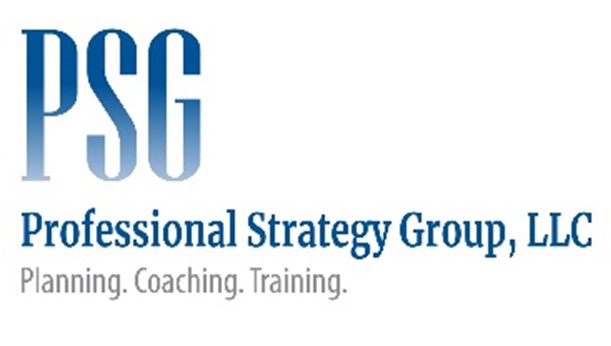Tribal knowledge is a term that frequently refers to how knowledge is retained in a firm. You can train everybody in the firm all you want, but if people aren’t deploying what you have prepared them for, that’s a significant challenge. It can also be a major issue if a high-level person in the firm retires or leaves without imparting the wisdom of what they know to other associates and senior managers.
So, where do we even begin with knowledge transfer and how to do it effectively? Look no further than business development in a CPA firm.
Unleashing Your Rising Stars And Developing Talent In Business Development
There’s a misconception that there’s some kind of natural born selling instinct that occurs in people versus others – “Oh, he’s got the outgoing personality to sell. I don’t.”
There are certainly some people at your firm who may be more outgoing and others who are more comfortable behind a desk. But make no mistake – even those folks with the desk in front of them can be nudged to do more in the way of business development, little by little.
Why should we care about this? If someone isn’t a natural seller, why are we trying to make them into one? One answer is that everyone is responsible for growing the firm. Another answer may be that we can’t make such a judgment on that yet. It may be too early in the game. For one thing, we don’t know how good that person could be with some consistent training. They could completely transform for the better with the proper guidance.
Secondly, some firms have the terrible tendency to rely too much on a few “superstar” team members who are very comfortable with business development. So what do they do? They give all the new business development opportunities to select individuals and risk putting too many eggs in one basket. Sure, they are performing brilliantly on a variety of accounts and they speak marvelously with clients and prospects. But what happens if that rising star decides to go somewhere else? Suddenly, you have a gaping void.
With this in mind, experienced Partners must share the knowledge they’ve obtained from years of acquiring new business for the firm and then growing it further once the big fish are reeled in. The knowledge sharing can also come from managers witnessing Partners in action.
“Shadowing” Partners And Sharing The Load
Every Partner needs to be involved in the firm’s growth in some way. This presents multiple learning opportunities among those below them.
We know that Partners need to operate at their highest and best use for the firm, which means they can’t be everywhere at once, doing everything. To free up Partners to have ample time to prospect, get essential client “face time” or deliver on a speaking engagement, some of their responsibilities demand to be shared by others directly below them, which opens the door for certain managers to take on new challenges. The Partners must see the value in pairing up with managers, so the opportunities to learn by watching are plentiful, ultimately leading to a handoff in client service in some instances.
When this type of close, purposeful collaboration occurs, firms genuinely align their resources with a strategy that involves mentoring, new business development, employee retention and even client retention. It’s not a “hope and a prayer” approach that things will work out for the best. It’s a roadmap and a repeatable template for the firm to leverage and distribute its knowledge in-house to a broader internal audience.
This topic of tribal knowledge speaks directly to some of the workshops we offer at Professional Strategy Group. One is called “ “Listening and Selling,” in which the behaviors needed to develop business successfully are role-played and another is “Becoming An Entrepreneur,” in which the behaviors needed to become a Partner are explored in-depth
The team members in the Listening and Selling workshop learn how Partners are responsible for producing and obtaining new clients. They learn how to ask questions, handle objections and close the engagement. At the beginning of such courses and workshops, it doesn’t matter whether your team member is an introvert or an extrovert. We stress that everyone has the ability to sell services.
Beyond the classroom setting, each participant is required to select a prospect to pursue over a five-to-six-month period. We begin with some simple questions that break down the mystique and intimidation factor that comes with business development, such as:
- As you think about a target company, which one has a good friend who works there?
- Can you talk to your friend with ease about our firm?
- Can you do it without trying to be “over-the-top” with your sales delivery – a real conversation instead of what feels like a pitch?
- Can you ask how they make decisions in their firm about services like yours?
They receive coaching on pursuit strategies every month. At the end of the timeframe selected for the program, each individual makes a sales presentation to a senior Partner from the firm and gets evaluated on their technique by the partner and their peers. Receiving this kind of live feedback is a powerful learning experience. Firms should expect that approximately 75% of the participants will engage with the companies being pursued for work.
We also get into real planning for milestones and metrics for success, with questions like:
- How many network connections should you have?
- How many referral sources should you have?
- How are you going to spend your time developing business?
The Becoming an Entrepreneur course speaks directly to the skills needed to become a partner. Partners are, by definition, entrepreneurs. They are responsible for production (serving their existing clients), sales and marketing (practice development) and human resources (training and mentoring their immediate subordinates). The reality is that senior managers have to exhibit these behaviors before being elected to the partnership.
The investment you make in your people today is an investment in your firm’s long-term too. It conveys a unique environment where people can grow and steadily build a career. No, you can’t predict how long someone will stay with your firm and it’s true that the average tenure of every employee is shrinking all the time. But consider this: When they do leave the firm – and let’s face it, even with retirement, they all will one way or another eventually – they will have more positive things to say to others because of the knowledge-sharing environment you created, from leadership on down. That’s what makes ex-employees into something more: Advocates and ambassadors who are the gift that keeps on giving.
Don’t let people at or near the top walk out the door without a consistent flow of knowledge transfer to others. And don’t let people below those leaders walk out the door without having made a dedicated effort to increase their base of knowledge significantly through mentoring and training – the kind that can be shared regularly not only through your in-house resources but also through the programs you can take advantage of from Professional Strategy Group.
Let’s talk about how we can serve as a vital component of increasing your team’s knowledge with training and coaching programs made exclusively for the accounting profession. Call PSG today at 312.860.0873 or email jimbrasher@professionalstrategygroup.com.




